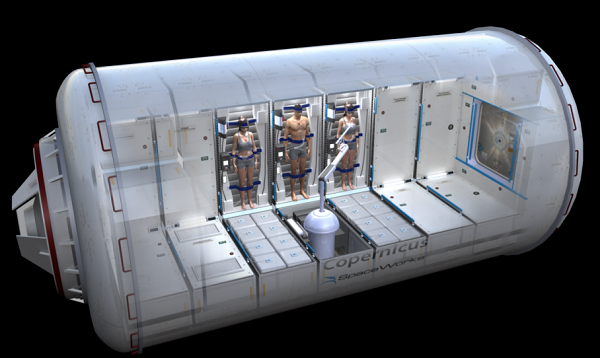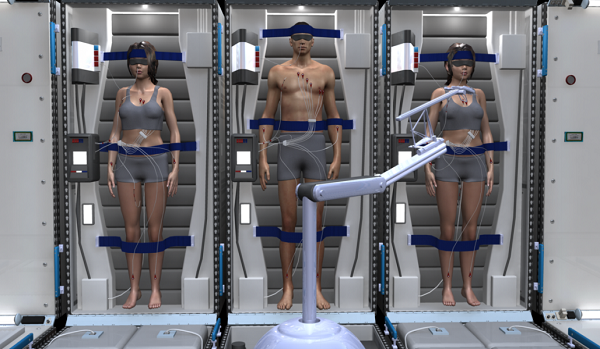
It may sound like an idea straight out of a sci-fi movie but scientists are actually considering putting astronauts into capsules and placing them in coma-like deep sleep for six months while they travel to Mars.
According to NASA, the deep sleep, also called human stasis, torpor or therapeutic hypothermia, greatly reduces metabolic processes in the human body. It became more commonly used as a medical procedure in the 1990s, specifically to manage patients affected by traumatic brain injury, stroke and cardiac arrest, NCBI (National Centre for Biotechnology Information) states.
Read: Therapeutic hypothermia often not considered for cardiac arrest
Why place astronauts in hibernation?
The study, backed by NASA, is exploring the idea as a way of cutting the cost of a Mars expedition. Astronauts under torpor would require significantly less food and water. The study estimates that the ship would carry a third of the cargo usually required. Because the astronauts are asleep, the space shuttle also wouldn’t require expensive amenities such as exercise equipment and a galley, Discovery News states. Also, the ship would not need to be pressurised or have artificially created gravity.
A visualisation of the inside of the space shuttle, courtesy of SpaceWorks/NIAC.
How is stasis induced?
To place the astronauts in human stasis, a tube is inserted into their nose. The tube, connected to a pump, transports a cold substance into the body to reduce the body temperature, Research and Innovation writes. The body is cooled internally as external cooling can cause damage to bodily tissue. Once the temperature is cooled to about 31 to 33°C (approximately 4 -6 degrees lower than normal), it is maintained for the duration of the journey. This process usually takes about four hours, according to the Pennsylvania Centre of Resuscitation Science. To wake the astronauts up, the temperature is slowly increased at approximately 0.5 degrees per hour.
What will happen while they travel?
Astronauts would be placed into specialised capsules that are heavily shielded against radiation. Their health would be monitored by a computer system, connected to the capsule. The computer system would monitor the astronauts’ nutrition levels, feeding them intravenously when required, Space.com explains.
Because the astronauts are not awake, their mental health will not deteriorate. In normal space missions, NASA psychiatrists monitor the mental health of astronauts in-flight via video conferencing technology due to the high risk of depression and feelings of isolation, Space Safety Magazine states.
One design for the space ship includes spinning capsules which, in the low-gravity environment, would assist in reducing the loss of bone and muscle in astronauts. Another way of reducing muscle atrophy would involve stimulation by transmitting low-level electrical impulses to the muscles, the SpaceWorks study states.
Astronauts will be monitored by a computer system ~ courtesy of SpaceWorks/NIAC
Wouldn’t this be dangerous for the astronauts?
According to Discovery News, to date patients have only been kept in stasis for the duration of one week. The Pennsylvania Centre for Resuscitation Science indicates that stasis can have a number of negative side effects such as irregular blood glucose levels (levels that are either too high or too low) and cardiac arrhythmia. If the computer malfunctioned or there were any other problems on board, the astronauts would have higher risk of dying than if they were conscious. Scientists involved plan to conduct more research to identify whether prolonged states of torpor are viable and how health risks and other negative outcomes can be minimised.
Read more:
Sleep deprivation a serious threat for astronauts
Link between astronauts and osteoporosis
Astronauts at risk of Alzheimer's
Sources: Discovery News, Space.com, Space Safety Magazine, Research and Innovation, Pennsylvania Centre of Resuscitation Science and NCBI




 Publications
Publications
 Partners
Partners










